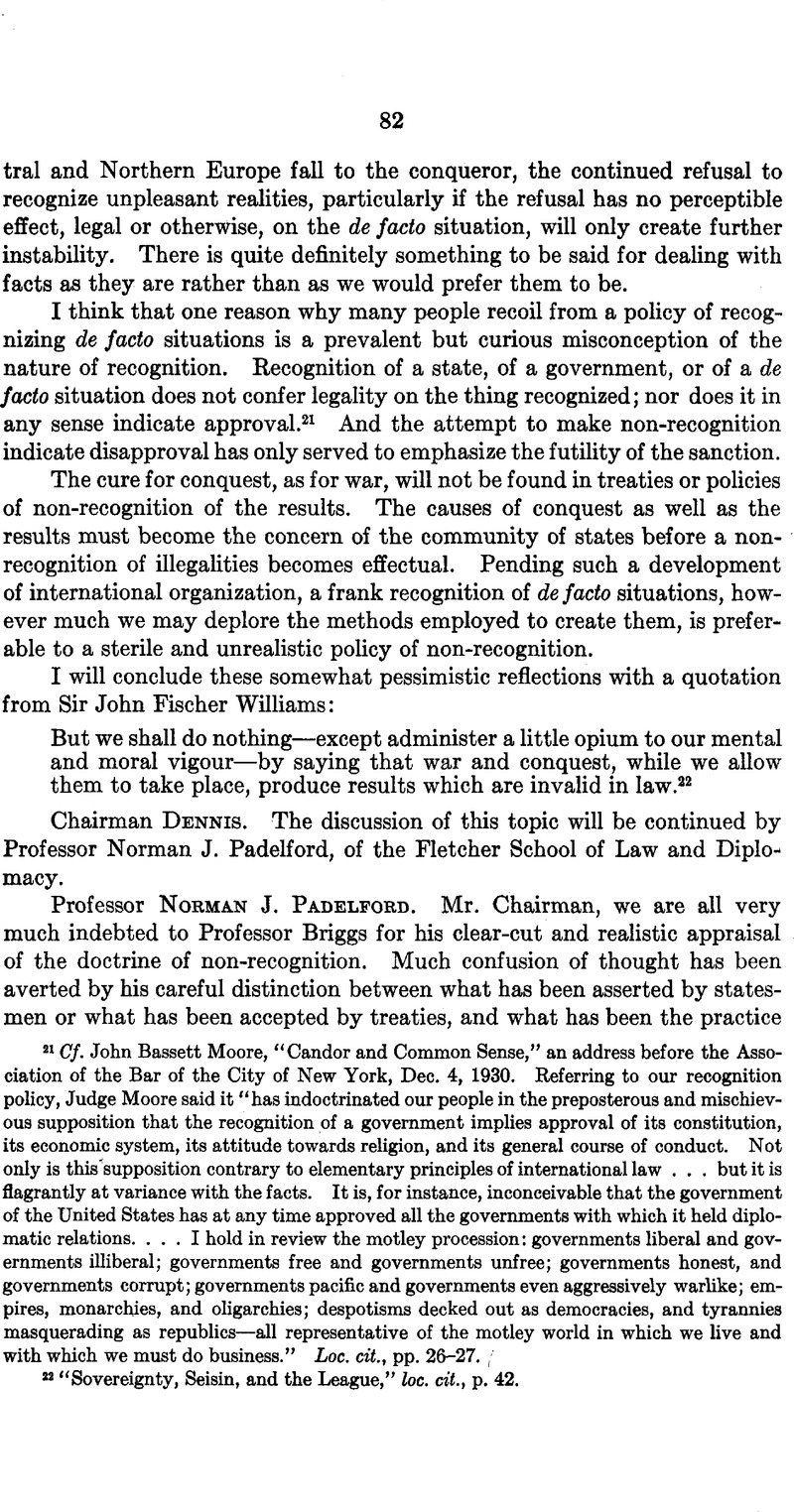No CrossRef data available.

1 Manchukuo Year Book, 1934, p. 154.
2 In 1932 the Manchukuan Government set up the Manchukuo Commission for the Liquidation of Claims. By the end of 1933 the commission had completed payments through the Bank of Manchuria to the following nations, none of which at that time had recognized the Government of Manchukuo: Great Britain, United States, Germany, France, Sweden, Holland and Denmark. Foreign consuls are said to have dealt with the commission. Sharp, R. H. Non-Recognition as a Legal Obligation Liége 1934 162 Google Scholar.
3 In 1937 Brazil announced it would not recognize any settlement not mutually acceptable to Bolivia and Paraguay. The final agreement removed any basis for non-recognition by Brazil.
4 According to information available in the Department of State, the following states have signified their recognition, either express or implied, of a change in the international status of Ethiopia:
Afghanistan, Argentina, Australia, Belgium, Bolivia, Brazil, Bulgaria, Canada, Chile, Costa Rica, Czechoslovakia, Denmark, Dominican Republic, Ecuador, Egypt, Estonia, Finland, France, Germany, Great Britain, Greece, Guatemala, Honduras, Hungary, Iraq, Iran, Ireland, Japan, Latvia, Netherlands, Nicaragua, Norway, Panama, Paraguay, Poland, Portugal, Rumania, Salvador, Saudi Arabia, Spain, Sweden, Switzerland, Thailand, Turkey, Union of South Africa, Uruguay, the Vatican, Yemen, Yugoslavia.
5 League of Nations Official Journal, Nov.–Dec, 1939, pp. 505–508, 531–541.
6 Ibid., Jan.–Feb.–Mar., 1940, pp. 11–20.
1 “The life of the law has not been logic: it has been experience” (The Common Law 1881, p. 1). Holmes used the words “experience” and “history” almost interchangeably, the former a little more broadly. Experience is recorded not only in “history” but also in “existing theories of legislation” (ibid).
2 Thus Pound writes: “The life of the law is reason tested by long experience and experience developed by reason.” (Fashions in Juristic Thinking, p. 20.)
3 “Act always so that you can at the same time will that the maxim by which you act, may be a universal law.”